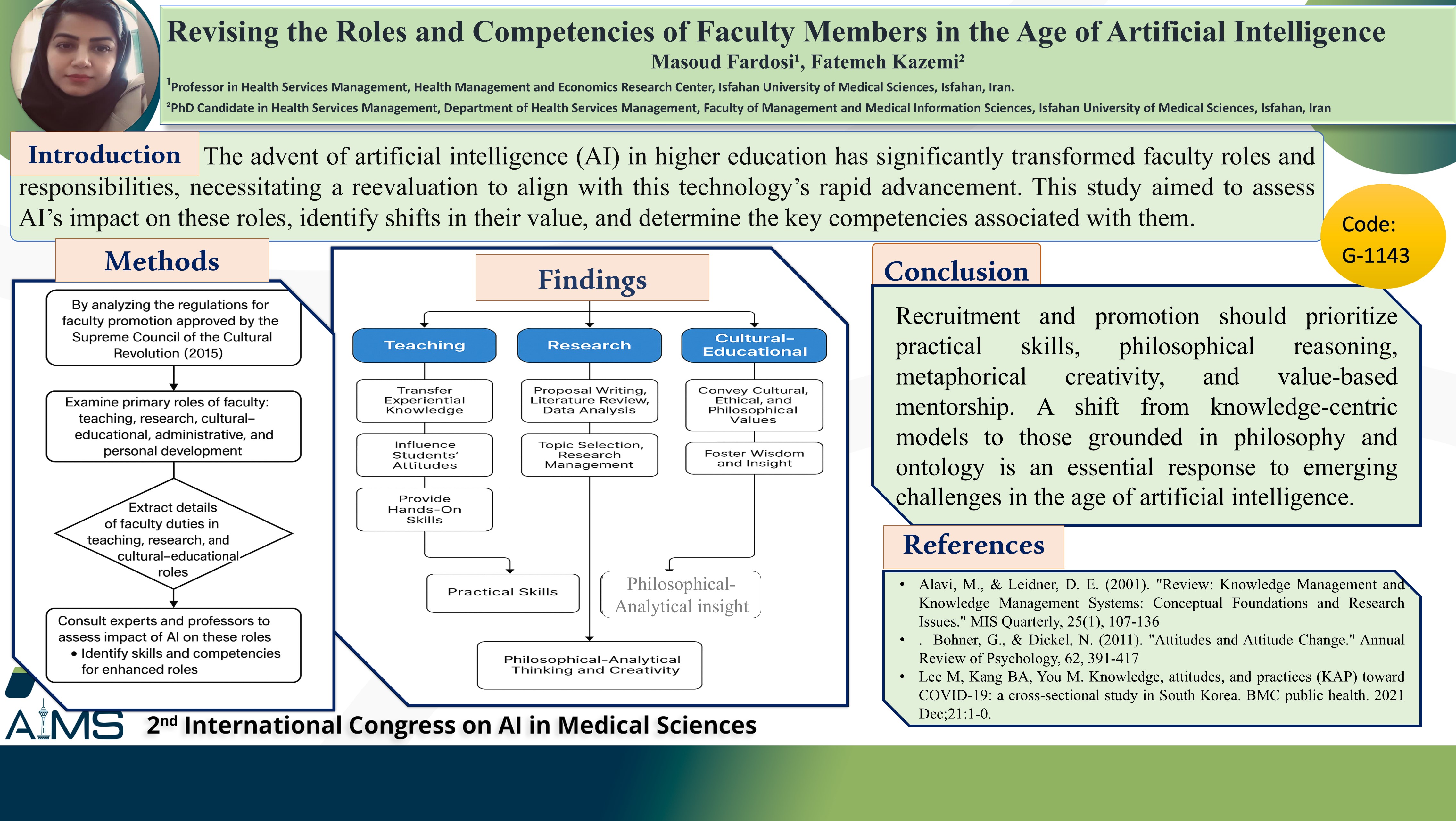Revising the Roles and Competencies of Faculty Members in the Age of Artificial Intelligence
Code: G-1143
Authors: Masoud Ferdosi ℗, Fateme Kazemi *
Schedule: Not Scheduled!
Tag: Health Policy, Law & Management in AI
Download: Download Poster
Abstract:
Abstract
Introduction: The advent of artificial intelligence (AI) in higher education has significantly transformed faculty roles and responsibilities, necessitating a reevaluation to align with this technology’s rapid advancement. This study aimed to assess AI’s impact on these roles, identify shifts in their value, and determine the key competencies associated with them. Methods: By analyzing the regulations for faculty promotion approved by the Supreme Council of the Cultural Revolution (2015), this study examined the primary roles of faculty members, including teaching, research, cultural-educational, administrative, and personal development. The methodology involved extracting details of faculty duties in the primary roles, particularly teaching, research, and cultural-educational roles. Subsequently, a group of experts and professors were consulted to assess the impact of AI on the diminishing or enhancement of these roles. The skills and competencies associated with the enhanced roles were then identified Findings: The results were categorized into three domains: teaching, research, and cultural-educational. While AI excels in knowledge transfer, faculty members' abilities to convey experiential knowledge, influence student attitudes, and impart practical skills become more prominent. In the realm of research, AI can facilitate certain research processes such as proposal writing, literature review, and data analysis, potentially diminishing faculty involvement in these areas. However, faculty members' roles in selecting research topics, managing research, and interpreting qualitative data become more significant. In the cultural-educational role, faculty members retain a prominent position due to their ability to transmit cultural, ethical, and philosophical values and cultivate students' insight and wisdom. Overall, of the 22 identified faculty duties, 10 roles became less prominent, while 12 roles became more prominent in the future. Based on these findings, practical skills, the ability to transmit values and knowledge, and competencies such as philosophical-analytical thinking and creativity, especially metaphorical creativity, should be given greater consideration when selecting new generations of faculty Conclusion: Recruitment and promotion should prioritize practical skills, philosophical reasoning, metaphorical creativity, and value-based mentorship. A shift from knowledge-centric models to those grounded in philosophy and ontology is an essential response to emerging challenges in the age of artificial intelligence.
Keywords
Faculty Members, Academic Member, Competencies, AI
